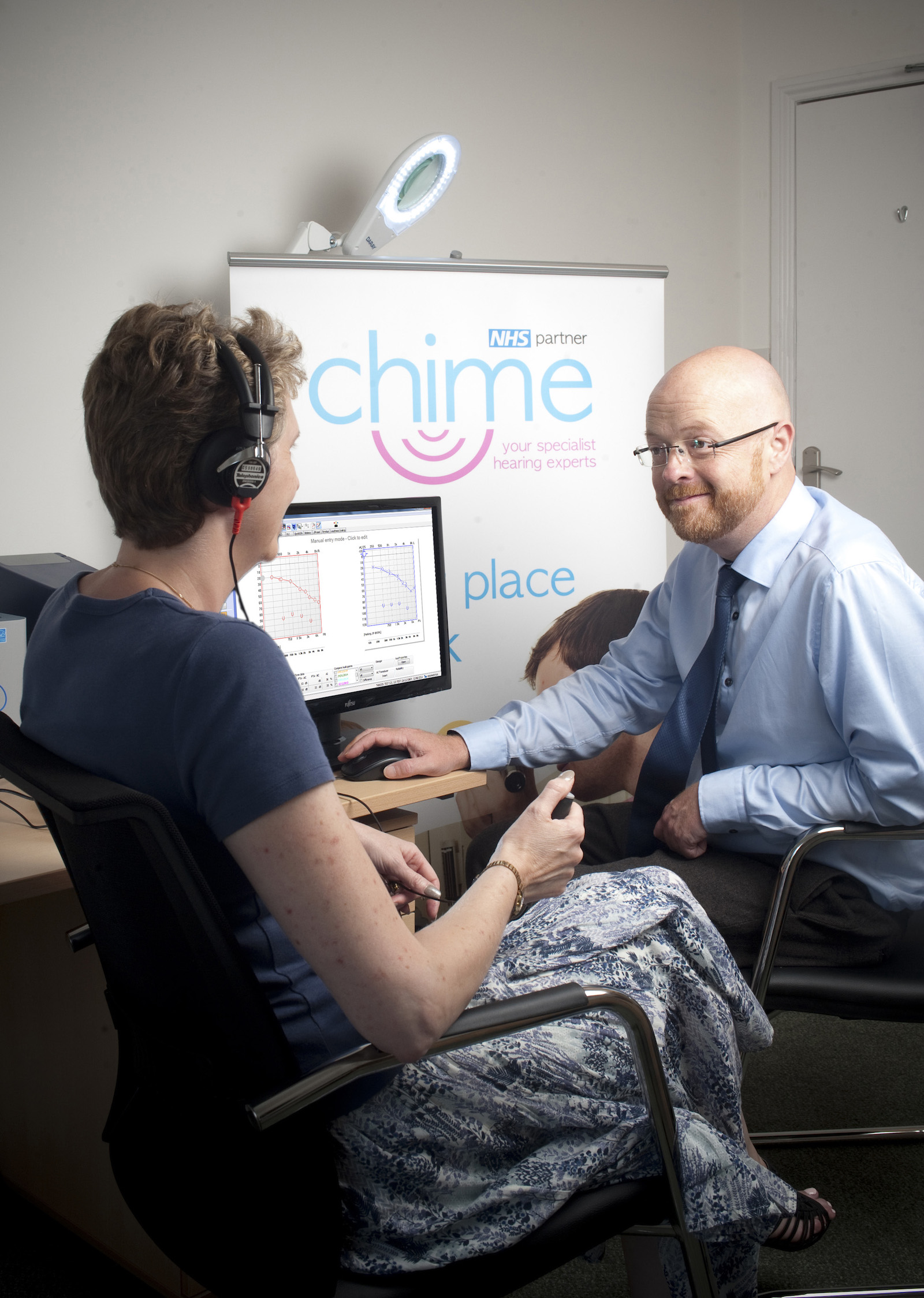Sounding out social investment: Chime’s story
Network, network, network – managing director of Chime Social Enterprise Jonathan Parsons shares the lessons he's learnt whilst at the helm of the only audiology NHS spin out on track to be considered social investment ready.
10 million people in the UK suffer from hearing loss, of which just under four million are of working age and 800,000 people are considered severely or profoundly deaf according to research conducted by Action on Hearing Loss .
The organisation also predicts that the total number of people suffering from hearing loss in the UK will increase to 14.5 million by 2031. The effects of hearing loss are varied and extensive.
Jonathan Parsons, managing director of Chime Social Enterprise and consultant clinical scientist of the Royal Devon and Exeter NHS Trust’s Audiology Department explains that hearing loss can result in social exclusion and difficulties maintaining employment.
“For the little ones, from babies aged just two weeks,” audiology care “is about giving them the best chance of language development and helping them understanding speech,” he says.
Based in Exeter, Chime Social Enterprise offers free audiology services in the region on behalf of NHS Devon.
 Photo credit: Chime Social Enterprise
Photo credit: Chime Social Enterprise
Spinning out and scaling up
In 2011, Chime utilised the government Right to Request scheme to spin out and adopt a social enterprise business model and the Community Interest Company (CIC) legal structure. It was and remains the only audiology service provider in the UK to do this.
Calling from a global audiology conference in Texas, USA a very busy Jonathan explains why: “We’d built a good reputation nationally as an NHS audiology service provider and begun to look around at the environment to see how things were developing.
“We started to talk to the Exeter Deaf Academy – a charity that has been around for 180 years – about a potential new build and through their CEO we got on to what an audiology social enterprise model would look like.
“We felt there was an opportunity to secure the way we were working more effectively in a difficult financial environment and to have more control over the decisions we were making in relation to the care of the patients.
“Over the period of a year – talking to staff and unions – we thought it was the way to ensure consistency of employment and upholding service to the patients. Essentially it was about being able to make decisions fast and renegotiate just about every supply chain we got and save more money to then invest more capital back into the care of the patients than the NHS procurement people had been able to do.”
Networking your way to investment readiness
After becoming a registered CIC, it was time for Chime to continue to plan for the future. It was awarded a grant of £68,880 from the Investment and Contract Readiness Fund (ICRF), which was managed by Social Investment Business on behalf of the Office for Civil Society.
The £10m ICRF offered grants of between £50,000 and £150,000 to enable social ventures to access new forms of investment and compete for public service contracts over £1m.
Jonathan explains that the ICRF grant was made possible through “developing networks and relationships with other organisations” in particular Stepping Out – a social enterprise business development consultancy.
You need the investment to free the time to help the business to prosper.
He continues to describe how the grant is being used: “We’re using it to develop a business plan that we can take to social investors. This is the opportunity we’ve got here – to take our four years of quality service and expand nationally to other services that would help improve the quality of services in different geographical areas and probably save money once we’ve started to get scale.
“We talked informally to social investors who we want to work with in the future, but obviously having a 20 minute chat with somebody is very different to getting a long-term business plan and strategy down on paper to then present formally.
“With Stepping Out we’ve began to put this document together, doing extra analysis and looking at what it would take to influence other hospitals in terms of social enterprises. A big part of that is trying to establish business capacity in what was an NHS service – that has and continues to be the biggest challenge.
“I was a clinician and whilst I can spend a lot of time working for the business rather than in it, talking to the right people about audiology services etc – in order to free me up to do this and push the model forward strategically, that has to come from somewhere. You need the investment to free the time to help the business to prosper.”
According to RBS SE100 Index data, Chime’s turnover between 2012 and 2013 was just over £2.5m. As a not-for-profit social enterprise all profit is reinvested into the organisation and patient care. With social investment in the pipeline for the future the idea is that Chime will be able to secure more contracts across the country, offer more services and thus increase its social impact.
|
Top tips for social investment first timers |
|
Business as usual...but with a social heart
The concept of spinning out NHS services is a controversial one, with many sceptical about any form of privatisation – social enterprise or otherwise.
Jonathan says: “We felt very strongly that it was really, really important that people understood what social enterprise was about and that our patients understood that we hadn’t become some private organisation that was making money differently to the way the NHS had been funded before. We sent leaflets out and had posters in the waiting rooms for example.”
Since the Any Qualified Provider (AQP) initiative was introduced a couple of years ago, for-profit organisations have been increasingly involved in the UK health care marketplace, creating added competition for Chime.
“For our patients, they tend to resonate more with the not-for-profit concept rather than with social enterprise. We’re about to open in a shopping centre near Exeter – you get some principled people but really you just have to be excellent. What our patients care about is knowing they’re going to get quality service,” says Jonathan.
Transforming from being an NHS project-based audiology service provider to an independent, business savvy social enterprise with a strategic long term vision to scale is a pioneering move. With the ICRF grant under their belt, Jonathan and the rest of the team are constantly gaining more experience in and knowledge about navigating the social investment market in the UK.
It's a deal!
Having received an initial grant from the ICRF, Chime have since received £170,000 in investment by FCA regulated social investor, Social and Sustainable Capital (SASC). This means that for the first time Chime is able to have a high street presence that offers adults crucial hearing services and advice.
The investment has supported the fitting out of a five treatment room property in the Harlequins shopping centre in central Exeter. Parsons said: "Patients can see us for free NHS digital hearing services at a time to suit them in the convenient location of Harlequins Shopping Centre. Having this physical presence is important to support patients, and is something that we have been able to do with the help and social investment from SASC."
This article is brought to you in partnership with Social Investment Business and Big Potential and is part of a series that explores the impact investment stories of social ventures dabbling in this market for the first time. We're getting to the root of the challenges, triumphs and complications that make up the journey to investment readiness in order to share key advice and lessons learnt for other organisations considering social investment options.
For more information about investment readiness support and Big Potential – a Big Lottery Fund grant fund delivering approximately £20m of grant funding over 3 years – click here.



![[file:field_file_image_alt_text]](https://www.pioneerspost.com/sites/default/files/styles/node-teaser/public/images/article/financeandinvestment1.jpg?itok=aTFESkAV)